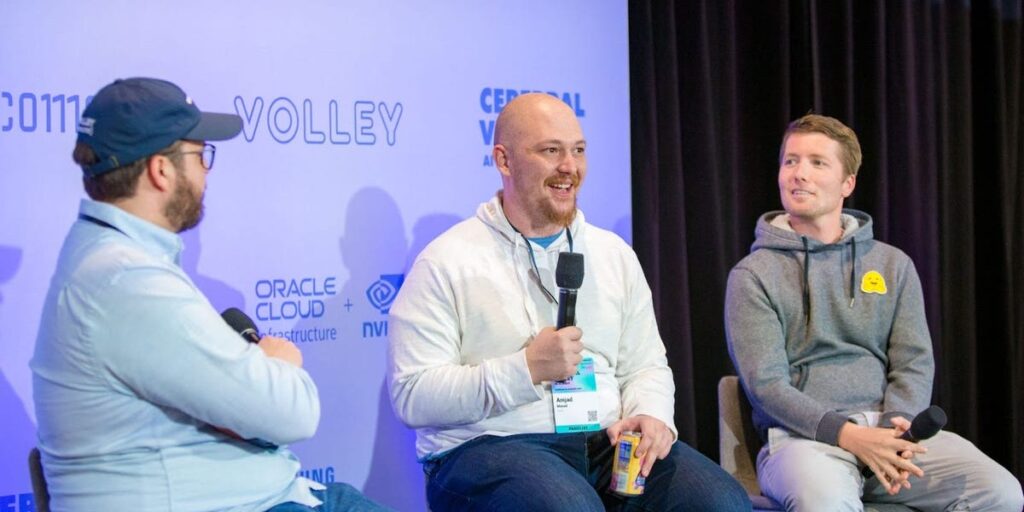Amjad Masad, Replit’s CEO, said the era of solo software creation has arrived, and all it takes is a few hours and a good prompt.
“You can just have a prompt and have an app,” he said on an episode of the “Big Technology Podcast” published Wednesday.
“I’d say at least set an afternoon to give it some good effort and try to get your first app. And once you do that, you just get it,” he added.
Replit, which lets users build applications through AI-assisted prompts and code autocomplete tools, has seen explosive growth.
The company said its annual recurring revenue soared from $10 million at the end of 2024 to over $100 million by mid-2025, marking a tenfold increase in under six months
Masad referred to this shift as “vibe coding” — a term used to describe building software by writing natural language prompts that AI turns into functional code.
While it lowers the barrier to entry, it still requires time and iteration, he said.
“People need to invest effort. It’s not magic,” he said. “You still need to learn prompt engineering, iterate, and understand that AI models have randomness — like temperature settings.”
Vibe coding is unlocking new opportunities for non-technical creators, Masad said, citing users ranging from HR professionals to doctors and Uber drivers.
“Everyone in the world has ideas,” he said. “And people build so much domain knowledge about whatever their field of work, right? But they never were able to make it into software because they didn’t have the skill, and maybe they didn’t have the capital.”
In one case, Masad said a British doctor built a comprehensive health-tracking app for under £100, or about $133, despite an agency quoting it £100,000, or $133,000.
Masad believes this new wave of one-person startups could help reverse declining entrepreneurship across the country.
“If you’re trying to build a company that generates a great living — where even you get rich from it — I think we’re almost there,” he said.
Solo entrepreneurs are turning vibe coding into real income
The rise of tools like Replit is giving solo creators unprecedented leverage, and it’s already changing lives.
Take Rebecca Beach, a former UX designer who doubled her income to up to $20,000 a month selling AI-generated digital products.
“Before I started vibe coding, it could’ve taken me weeks or months to create a single course or printable,” she previously told Business Insider. “Now I can create a printable workbook in under 20 minutes.”
Therese Waechter, owner of the online sticker shop Otto’s Grotto, said vibe coding helped her improve her Shopify storefront, add custom features, and double her revenue.
“I coded in a wholesale catalog and added customizations for listings without developer help,” she told Business Insider. “I think these features increased trust in my brand for government clients and retail stores, and boosted my conversion rate for high-profit items.”
Even total beginners are diving in. Business Insider’s Alistair Barr built a working e-commerce site with his daughter in six hours using the AI tool Bolt.
The pair used natural language prompts to add payment integrations and launch a live store without writing a single line of code themselves.
Still, not everyone sees vibe coding as a total replacement for software engineering.
Speaking on the sidelines of VivaTech in Paris in June, GitHub CEO Thomas Dohmke said that while AI makes it easier to launch startups, a “non-technical founder will find it difficult to build a startup at scale without developers.”
Bob McGrew, the former research chief at OpenAI, echoed that point in June, saying prototypes made through vibe coding still need to be “rewritten from scratch” by human engineers.


